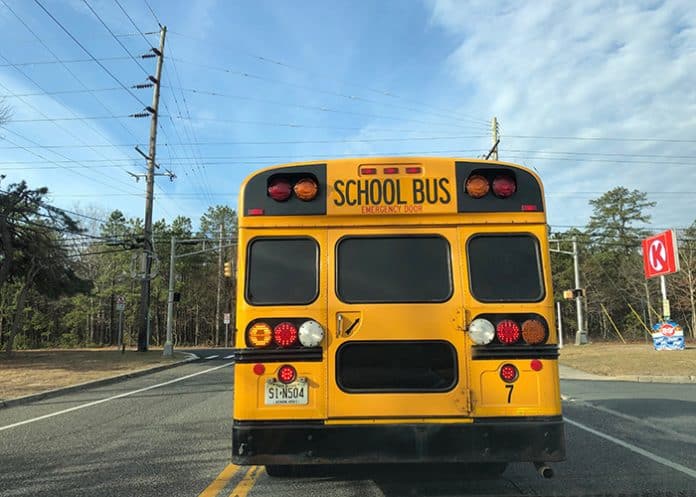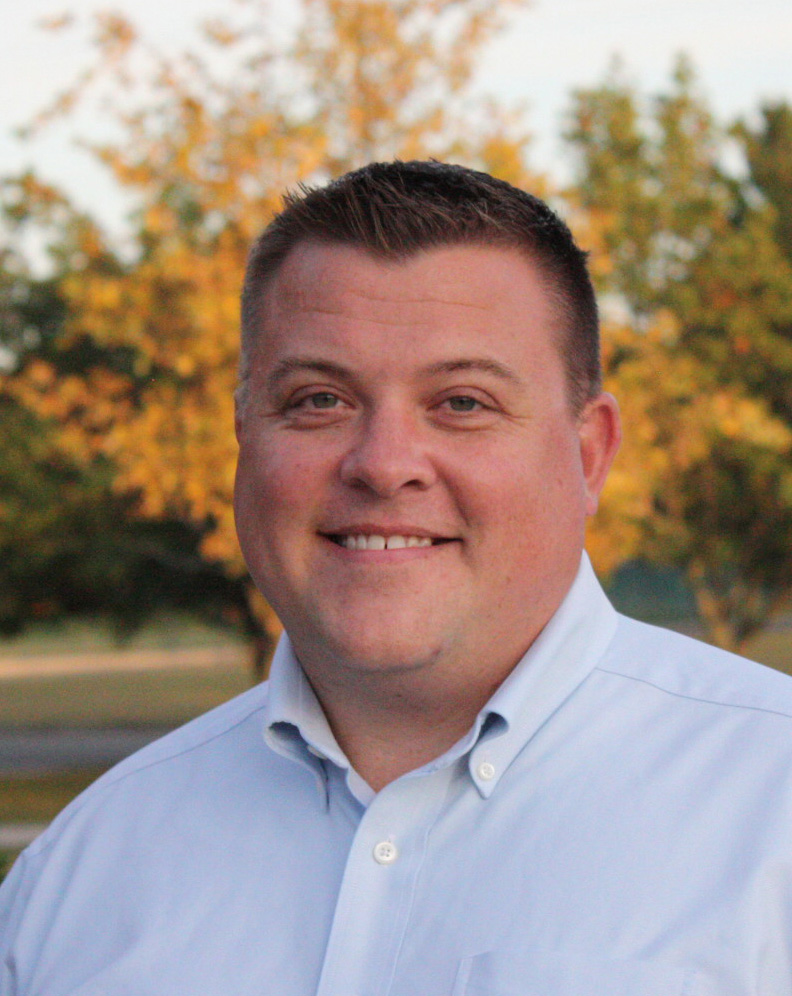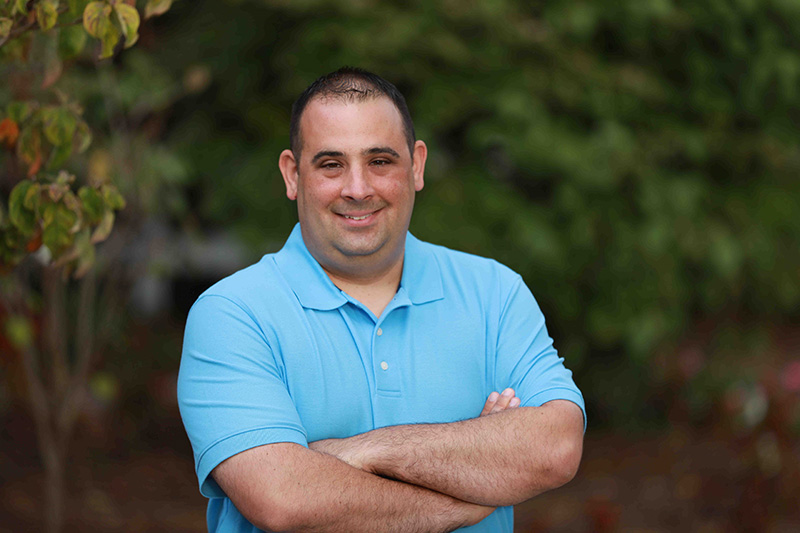
PINE BEACH – The term “Board of Education” might be a misnomer because their responsibilities are more far-reaching than just the curriculum of students. In fact, the finances of the district is a major concern for the candidates.
The Toms River Regional School District has members from each of its sending districts, including Beachwood, Pine Beach, and South Toms River.
Pine Beach residents Kevin Kidney and Anthony Trump are competing for one, three-year term on the ballot this year. The incumbent, Russell Corby, is not seeking re-election.
Each candidate was asked to list their most recent employment and experience in serving the community. They were also asked to set forward what their plan is for the school district. Their answers are being presented in alphabetical order. They have been lightly edited for clarity. Financial figures stated by the candidates were not able to be verified by press time.
Kevin Kidney
Kevin Kidney teaches world cultures and geography at Lake Riviera Middle School in Brick. He has been a teacher since 2004. This is his first experience running for public office.
“I currently work with a non-profit organization called First Tee coaching golf for children and also have volunteered as a golf coach for the middle school I work at for the past 10 years,” he said. “I also work with an animal rescue group called LuvFurever. I have adopted three dogs and now that I don’t have any more room to adopt or foster, I transport animals when needed.
“The largest issue that caught my attention is transportation,” he said. “Student transportation services have increased by $1.6 million in just two years. I believe the School Board’s recent decision to bus students directly to Lakewood private schools was a bad decision that must be reversed before it puts further strain on the district’s budget. There are over 130 private schools in Lakewood and it’s just too costly. We should just continue to pay aid in lieu. We’ve all witnessed how private school busing has stripped away funding from the public schools in Lakewood. Residents don’t want to see that happen here in Pine Beach.”

State law dictates that districts either transport all students in their area or give a payment in lieu of transportation.
“Our district is hemorrhaging state aid and teachers are being let go. Toms River Schools now has one of the highest student-to-teacher ratios in Ocean County and students are no longer getting the quality education that they deserve,” he said.
“I’ll fight for our fair share from Trenton and I’ll also make sure the district cuts wasteful spending. We’ve lost around $10 million in state aid over the last five years, but the district has also increased spending by an additional $11 million. The combined effects have increased taxes by over $21 million in the last five years. Someone has to be the adult in the room and make the appropriate cuts, while still maintaining student services.
“Extracurricular activities and athletics have lost over $406,000. We need to cut waste, not sports and programs for our children. There needs to be a thorough sifting of the budget – to make room for the things that make a difference in the lives of children.
“In the face of millions in state aid cuts, this school board gave raises to the superintendent and his assistant superintendents,” he said. “Programs are shrinking, while salaries for administration are rising; to me, there’s something wrong with that. It must be fixed. This will be another important area that I will focus on.”
When asked what new things he’d want to bring to the district, he said “As I would be new to this position, I would want to take some time to fully understand the problems the district is experiencing and gather information and opinions from my constituents, parents, teachers, administrators, children, and anyone whom my decisions might affect before I make long-lasting decisions or plans. I never want to promise anything I can’t deliver so it would be irresponsible of me to answer this question until I have been in office for a while.”
Anthony Trump
“I have worked for 16 years at Ocean County College in many roles including my current role as Director of Admissions and as Adjunct Faculty,” Trump said. “I am also additionally employed as an Adjunct at Kean University. I have also served as a science teacher in both the Jackson and Brick School Districts.”
This is his first time running for elected office, but has a number of civic positions, including: St. Paul Lutheran Church Council, Beachwood Soccer Club, and leadership positions within professional boards associated with OCC.
“Trenton has cut our budget $3 million this year based on a “secret” funding formula they won’t reveal. We need to force Trenton to restore the funds we need,” he said.
This is in reference to the state’s cut in aid to Toms River, due to declining enrollment. However, when the district pressed Trenton for an explanation, they were told that the details were not to be made public. It was proposed by Senate President Steve Sweeney and signed by Gov. Phil Murphy.
[adrotate banner="278"]“Toms River has historically spent the least amount of money per pupil in Ocean County and ranks amongst the lowest in the state in this area. We have done our part to be fiscally responsible to our taxpaying citizens while maximizing the success of our students. The new funding formula under Governor Murphy threatens to take millions in school aid away from our children. It is deeply flawed and if not changed will do irreparable harm to our district and community,” he said. “I pledge to fight this unfair formula and join the nearly 75 SOS (Support Our Students) districts in their fight for fair funding. How is it fair that other districts are receiving aid that allows them to spend over four times more per pupil than we do? It is time to utilize every resource at our disposal and send the message loud and clear that this is unacceptable. Our kids deserve fair funding and I’m ready to fight Trenton for what’s right.”

Another issue for him was the emphasis on testing.
“Teaching to the test takes valuable creativity away from our teachers. Additionally, it inhibits students from developing a love of learning by placing undue pressure and anxiety on them to achieve benchmark scores. Test scores are just one small way to measure the ability, learning, and potential of a child and I believe in a more multifaceted approach. Through utilizing multiple measures to assess student learning outcomes we provide pathways to meeting standards that meet the needs of our diverse children. Not all children are strong test takers and it is unfair to hold this as the only method of proving learning outcomes,” he said.
“We need to increase opportunities for K-12 academic and career planning to assist students with identifying passions and interests and to prepare them for college, careers, and adult life,” he said.
“I believe in creating a highly-effective, challenging, supportive and sustainable work environment. Teachers and administrators do the important work that impacts the lives of our children. They must feel valued, challenged, and supported through appropriate initiatives so we can get the best out of them. With K-12 staff constantly under public scrutiny, we need to let them know how valuable they are and find ways to retain the highest performers that are passionate about the incredibly important work they do.
“Extracurricular sports, clubs, and activities are a critical part of the learning process. They assist our students’ social development and provide opportunities to hone and practice soft skill development. Additionally, they keep our children out of trouble, teach them important life lessons, and motivate them to perform academically. I fully support a strong extracurricular programs.
“The safety, security, and well-being of our children is paramount. I believe in utilizing the most current technologies, trainings, processes, and procedures to develop policies that provide a safe and secure environment for our children. Additionally it is imperative that the schools develop collaborative partnerships between local law enforcement organizations and school resource officers. Our counseling offices must be properly equipped and trained to deal with many of the public health crises our students are facing including suicide, drug, alcohol, and vaping epidemics. We need to provide resources to assist schools with supporting families that are facing these issues.
“It is critically important to work with our local community organizations and PTOs in ways that leverage collaboration, partnerships, and sharing of resources, information, and support,” he said.
He proposes meeting the needs of all students through reinventing and developing new programs, processes and practices.
“American public schools were founded in a time where the factory model was the prevalent model for organizations in the late nineteenth and early twentieth century. Schools were created in this image as society saw it as a successful and valuable way of educating people. In many ways, this continues today as students are shifted from grade to grade without much thought of their individual differences. Some students require remediation and additional support while others are thriving and would benefit from additional challenges.
“I believe in providing individualized tracks and options to meet the needs of all students. Resource, honors, Pinnacle, advanced placement, and dual credit courses are just a start but we need a diverse array of options to meet the needs of our diverse student body.
“For example, AP options are wonderful, however, very similar to PARCC and NJSLA, they focus primarily on test scores and are only offered to the very top student. We need to diversify our offerings to expand and include dual credit opportunities that allow honors and other students’ opportunities to take college courses during the school day that will count towards both their high school graduation requirements and as college credit.
“Our students deserve curricula that are diverse enough to meet their needs and challenge them in a way that they are engaged and enjoy learning.
“Research needs to be done to look at not only start times of schools and best practices for learners but also how we can effectively schedule classes to maximize resources and provide the best outcomes for students. Block scheduling, different school start times, small class sizes, and other opportunities should be investigated with the goals of maximizing our student outcomes while efficiently utilizing the scarce resources we have,” he said.






